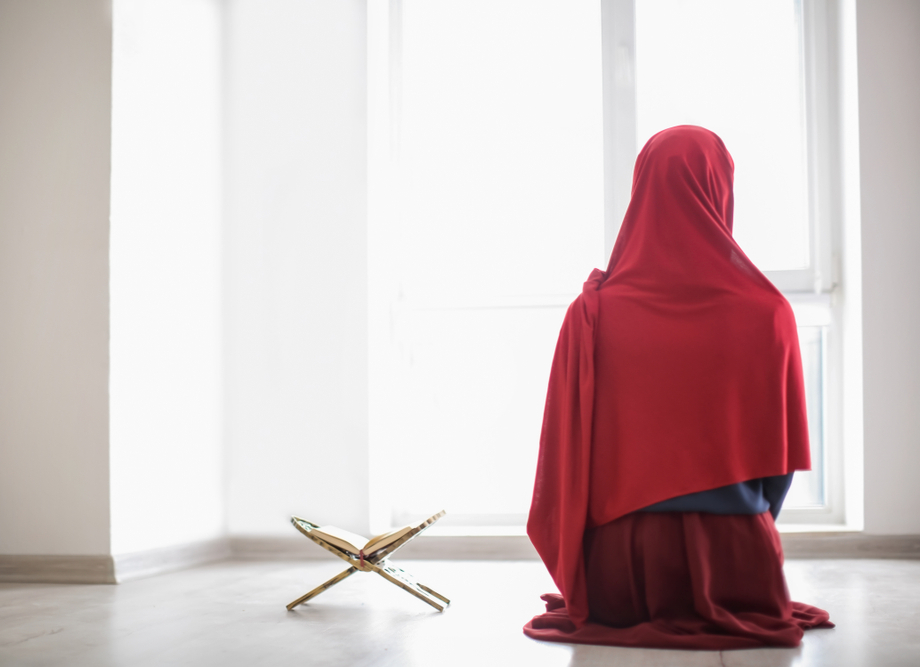Should a Woman Shave Off Her Hair After Permanent Treatment?
Answered by Mufti Muhammad Taha Karaan
Question
Is her prayer valid if a woman has permanent hair straightening, rebonding, or keratin treatment? Does the therapy prevent water from reaching the hair? This treatment also uses some humectant emollient, which coats the hair and gives a smooth feel. It also partially prevents water from getting into the hair. It’s similar to a conditioner. Some of my friends and I have done this hair rebonding, and it’s permanent. What should we do now? Would this constitute a necessity that would permit me to shave my hair?
Answer
In the Name of Allah, the Most Merciful and Compassionate. May Allah guide us to what pleases Him. Permanent hair treatment creates a layer, but there are details below. There is no need to shave your head based on the details below. The details of women cutting their hair can be found here.
My late teacher, Mufti Taha Ibn Yusuf Karaan (may Allah have mercy on them), a renowned mufti of the Shafi’i School, wrote the following legal ruling (fatwa) about the ‘Brazilian Hair Treatment’ in question:
After studying the question around the effect of Brazilian hair treatment on the validity of ṭahāra, we conclude the following:
- It is undeniable that this treatment causes the formation of a layer around the hair shaft.
- Layers formed on areas that water must reach during ṭahārah are of two types: permeable and impermeable to water. The absorbent layer does not hinder the validity of wuḍū and ghusl; only the impermeable layer obstructs this regard.
- The impermeable layer may be further divided into two sub-categories:
A layer with a body (jirm), perceptibly distinct and separate from the skin, and removable through acts such as scraping or peeling.
A layer that has been worked into the skin to such an extent that it no longer has a perceptibly distinct and separable body, although some of its traces remain perceptible.
- The layer described in 3.2 does NOT hinder the validity of wuḍū and ghusl.
قال النووي في المجموع شرح المهذب 1/492 [تحقيق المطيعي، طبعة دار إحياء التراث 1422/2001]:
إذا كان على بعض أعضائه شمع أو عجين أو حناء وأشباه ذلك فمنع وصول الماء إلى شيء من العضو، لم تصح طهارته، سواء أكثر ذلك أم قل. ولو بقي على اليد وغيرها أثر الحناء ولونه دون عينه، أو أثر دهن مائع بحيث يمس الماء بشرة العضو ويجري عليها لكن لا يثبت، صحت طهارته.
وقال فيه 1/456:
قال أصحابنا: فلو أذاب في شقوق رجليه شحما أو شمعا أو عجينا، أو خضبها بحناء وبقي جرمه، لزمه إزالة عينه لأنه يمنع وصول الماء إلى البشرة. فلو بقي لون الحناء دون عينه لم يضره، ويصح وضوؤه. ولو كان على أعضائه أثر دهن مائع فتوضأ وأمسَّ بالماء البشرة وجرى عليها ولم يثبت، صح وضوؤه، لأن ثبوت الماء ليس بشرط. صرح به المتولي وصاحبا العُدَّة والبحر وغيرهم.
- Although impermeable to water, the coating formed on the hair by the Brazilian treatment is, in the first place, not of the type with a visually perceptible body, although its effects are noticeable.
- Furthermore, this coating forms at the molecular level. Although acknowledged to exist, things at this level do not of necessity affect the aḥkām of the Sharīʿa.
وقال إمام الحرمين في نهاية المطلب 1/9:
وإن اعترض متكلف من أهل الكلام على فصل الفقهاء بين المجاورة والمخالطة، فزعم أن الزعفرانَ ملاقاتَه مجاورةٌ أيضا، فإن تداخُل الأجرام محال؛ قيل له: مدارك الأحكام التكليفية لا تؤخذ من هذا المأخذ، بل تؤخذ مما يتناوله أفهام الناس، لا سيما ما يبنى الأمر فيه على معنى اللفظ. ولا شك أن أرباب اللسان لغةً وشرعًا قسموا التغير إلى ما يقع بسبب المجاورة، وإلى ما يقع بسبب المخالطة، وإن كان ما يسمى مخالطة في الإطلاق مجاورة في الحقيقة. فالنظر إلى تصرف اللسان.[ونقله النووي في شرح المهذب 1/153 عن النهاية ببعض تصرف]
- Oil applied to hair forms a layer as well. Its effects are visible in the shine, smoothness, and slickness that it imparts to the hair. When worked into the hair to the extent that it no longer constitutes a firm distinct and separate from the hair, it presents no obstacle to the validity of ṭahāra.
- From the exclusive perspective of obstructing water from reaching the hair, it is our considered view that the Brazilian hair treatment does NOT hinder the validity of ṭahāra.
- This fatwā focuses on the obstruction angle exclusively. Further factors that might impact the Sharʿī status of hair treatment, such as the origin and purity of the ingredients of substances used, have not been considered for the present moment.
- The approval of this treatment in terms of obstructing water, the permissibility of origin, and purity, should not be misconstrued to mean that its use in a manner that violates the Sharīʿa is condoned.
Allah knows the best.
[Mufti] Muhammad Taha Karaan
Checked and Approved by Shaykh Faraz Rabbani
Shaykh Taha Karaan is a Shafi’i scholar born in Cape Town, South Africa to a family renowned in both its maternal and paternal lineage for Islamic scholarship. His father, Shaykh Yusuf Karaan, is one of the oldest and most distinguished Islamic scholars in the Cape. Shaykh Yusuf – famous for his translation of many of Shaykh al-Hadith Mawlana Muhammad Zakariyya al-Kandhlawi’s seminal works – currently sits as the chief Magistrate for Islamic Civil Matters in the Muslim Judicial Council (MJC).
